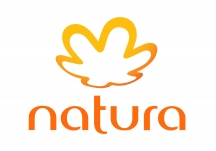

Natura Cosméticos SA

São Paulo, Brazil
December 2014
Personal care products
Manufacturing
Argentina,
Brazil,
Chile,
Colombia,
France,
Mexico,
Peru
Founded in 1969, Natura is a leading Brazilian multinational in the cosmetics and personal care industry, renowned for its direct sales model. Through its sustainable business practices Natura has actively protected 2.2 million hectares of the Amazon Rainforest for over 20 years, positively impacting more than 11,000 families. Natura operates in 7 countries across Latin America, supported by a workforce of over 9,400 employees and 3.5 million Beauty Consultants. Since achieving carbon neutrality in 2007, Natura has embarked on a journey towards Net Zero emissions. The company's products are cruelty-free and 95% vegan, with the EKOS line certified by the Union for Ethical Biotrade (UEBT). In 2014, Natura became the first publicly traded company to attain B Corp certification. This milestone was subsequently reaffirmed through renewals in 2017, 2020, and most recently in 2024. Notably, Natura is one of the few companies globally to score in six impact business models (IBMs) and ranks among the top 5 percent of all B Corps within its group and size category.
Overall B Impact Score
Governance 18.6
Governance evaluates a company's overall mission, engagement around its social/environmental impact, ethics, and transparency. This section also evaluates the ability of a company to protect their mission and formally consider stakeholders in decision making through their corporate structure (e.g. benefit corporation) or corporate governing documents.
What is this? A company with an Impact Business Model is intentionally designed to create a specific positive outcome for one of its stakeholders - such as workers, community, environment, or customers.
Workers 25.8
Workers evaluates a company’s contributions to its employees’ financial security, health & safety, wellness, career development, and engagement & satisfaction. In addition, this section recognizes business models designed to benefit workers, such as companies that are at least 40% owned by non-executive employees and those that have workforce development programs to support individuals with barriers to employment.
What is this? A company with an Impact Business Model is intentionally designed to create a specific positive outcome for one of its stakeholders - such as workers, community, environment, or customers.
Community 51.1
Community evaluates a company’s engagement with and impact on the communities in which it operates, hires from, and sources from. Topics include diversity, equity & inclusion, economic impact, civic engagement, charitable giving, and supply chain management. In addition, this section recognizes business models that are designed to address specific community-oriented problems, such as poverty alleviation through fair trade sourcing or distribution via microenterprises, producer cooperative models, locally focused economic development, and formal charitable giving commitments.
What is this? A company with an Impact Business Model is intentionally designed to create a specific positive outcome for one of its stakeholders - such as workers, community, environment, or customers.
Environment 35.1
Environment evaluates a company’s overall environmental management practices as well as its impact on the air, climate, water, land, and biodiversity. This includes the direct impact of a company’s operations and, when applicable its supply chain and distribution channels. This section also recognizes companies with environmentally innovative production processes and those that sell products or services that have a positive environmental impact. Some examples might include products and services that create renewable energy, reduce consumption or waste, conserve land or wildlife, provide less toxic alternatives to the market, or educate people about environmental problems.
What is this? A company with an Impact Business Model is intentionally designed to create a specific positive outcome for one of its stakeholders - such as workers, community, environment, or customers.
Customers 4.2
Customers evaluates a company’s stewardship of its customers through the quality of its products and services, ethical marketing, data privacy and security, and feedback channels. In addition, this section recognizes products or services that are designed to address a particular social problem for or through its customers, such as health or educational products, arts & media products, serving underserved customers/clients, and services that improve the social impact of other businesses or organizations.